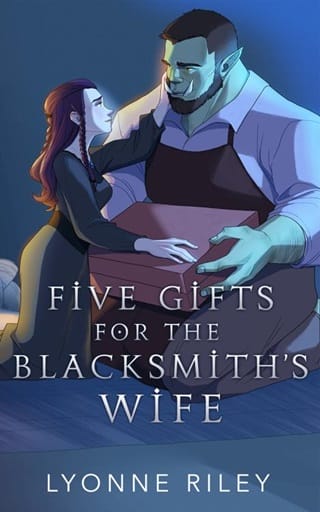Chapter 9 Performativity
With each life, it grows easier to move between worlds: they echo each other, harmony and counterpoint.
I manage to dislodge one of my curses on a world not far from home, snagging it on the burrs of a city much like my own. My curse wedges its doors forever open. I'll return there often, in the time after time to come: those open doors call out to me, bright lights in the dark ocean. Perhaps that place appeals to me because it's like but not too like; unlike enough to surprise, sometimes. Perhaps it's only the curse, ceaselessly calling me home.
It is difficult to stay in any one place, one world, one life. Each life is hard time, requiring painful incarnation, carceral enfleshment, the performativity of renaming and reliving, learning new histories, wilful forgettings and distancings, whatever is needed to maintain narrative continuity and protect genre boundaries. But I don't forget the important things. I don't forget where I came from. One time I decide I miss the sound of the new year birds I grew up with, the eerie hooting that signaled the turning of the wheel—but you might already know that story. I'll tell you another: the adventures of Electric Head in the city of the dead. It begins, as many things end, with maggots.
The Adventures of Electric Head in the City of the Dead
The first maggot drops onto Vidyucchika's hand while she's stood in front of her stove, the flame burning a little too high in this closed and yellow room. The wriggler is dirty white against her brown—when she puts on a skin to enter a world, she prefers skins that feel like home—swimming in the thick film of her sweat. She twitches it away, but doesn't scream. She wants to, but the shriek catches in her throat and she coughs and retches and has to keep herself from puking instead. She doesn't even realize how hard she's gripped the wrist of her contaminated hand until she feels the blood stop flowing, roiling and dammed. Her fever is rising again and the inside of her head is soft and furry and warm. Maggots eat dead tissue; she's not dead, therefore it can't eat her. But there's the bad smell again, high and sweet like decomposition, a sharp note rising above the smell of cooking food. Either her fever's spiking again or there's something dead above her head. She looks up, and sees another maggot about to fall; she backs away. The maggots are falling from the imperfect joins between the loose panels of the ceiling.
"Go away, Lambajihva," she says to the haunting corpse above. "I know it was my fault, stupid hare. I get it, already."
The corpse crawls away. The ceiling panels bulge and shift under its hands and knees.
"And take your maggots with you!"
It has been ten years since the troubled times. Or ten days, or ten hours; it feels recent, but Vidyucchika checks herself to be sure: she is a grown young woman, again, not a child still or again, therefore time has passed. But that time came folded in on itself, like a thick sheaf of paper in a letter, like a long, long letter from someone she'd loved who went far away. She's never had a letter like that. Everybody who might have sent her one died in worlds gone by. She imagines letters from the land of the dead, envelopes stained with funeral ash, delivered by a dead postman riding a bicycle with flat tires, rims squealing as he pedals.
Her landlady is Mrs. Akan. She lives downstairs. If Vidyucchika were the sort of tenant who made a lot of noise—singing and dancing and hosting loud parties—then Mrs. Akan would not have been the sort of landlady who came upstairs and banged on her only tenant's door to demand peace and quiet. These hypotheticals are ghosts, as are the friends that Vidyucchika does not have. Vidyucchika is a quiet tenant, and Mrs. Akan a quiet landlady who's never had a tenant before. When she says Vidyucchika she pronounces the first syllable with a long ee, no matter how often Vidyucchika says it back, pointed and short. Mrs. Akan calls Vidyucchika Vee-daughter, which sounds oddly like the word for mist. It makes her feel cold and tenuous, as if she might disperse in the wind.
"Vee-daughter," Mrs. Akan says. "I'm glad to have a young living person in the house."
Mrs. Akan is also alive. What she means is that the dead Mr. Akan sometimes comes visiting, which Mrs. Akan finds very upsetting. Vidyucchika helps her ward him off with dummala smoke. Her landlady doesn't like to leave the house, so it's Vidyucchika's job to go out in the night and buy supplies whenever something runs low, grains or vegetables or more resin to burn. Fresh is better, and while there is a thriving market for dummala among the city's living, fresh is expensive because of the Summer Court's import ban. The government wants to promote local production. The resin Vidyucchika brings home these days is not quite right, adulterated: a rougher grain than the powder should be, a darker brown as if it was already burned. There is an undercurrent of wrongness to the smell, something harsh felt in the throat.
Nighttime is safer. The dead sleep then, most of them; the living earn their red eyes. The nights are also cold. Vidyucchika wraps herself in her thickest shawl when she goes out, the soft memory of a pelt whose comforting weight she misses. She only sometimes remembers what that means. The streetlights are yellow, their metal bodies sometimes strung with faded, rain-dirtied flags in white and yellow. Yellow from the troubled times; white for the funerals, except there hasn't been a funeral in Pale Black Moon for years. Perhaps not anywhere in the city. Ever since the troubled times, the dead get up and walk away before they can be prayed for. Sometimes they join in the prayer, unwillingly, for the early rituals of appeasement, perhaps fearing the consequences if they do not, but the dead always lose interest before the procession, never mind its destination. If the mourners try to stop the dead, if they try to grab at their heels or take them by the arm and wrestle them into a coffin or onto a pyre, the dead will fight, and the other dead will come to help, and it often starts a war. The dead are very willing to start a war, perhaps because they know they can't lose. It's hard to lose when allegiance shifts so quickly. Every deathbed is a conversion; an indoctrination, the living say, though Vidyucchika thinks of it as a reasonable shift in allegiance as one's material interests change. The living have learned to keep their hands to themselves.
Sometimes when Vidyucchika is out in the busy night, she pretends to be dead so that men will give her a wide berth. It can be hard to tell the living from the dead under those yellow lights, if there is no visible wound or decomposition. The trick, she believes, is in the gait and in the mouth, not the eyes. The dead can be as bright-eyed as anyone, but their jaws are either slack or grinding, and of course, the dead shuffle.
Mr. Akan comes by the next morning, as he often does on Sandudays after the weekend, unable to escape the habits of a lifetime.
"Maybe he just wants to sit in the living room and read the paper," Vidyucchika says, waving the brazier at the closed door, incense burning. The brazier is heavy, black, ash-stained metal. The door is metal, too: a grille with gaps between the bars big enough for Vidyucchika to slip through any finger but her thumb. She doesn't get close enough with the long-handled brazier to grate metal on metal. "Drink his morning tea. Put on a tie before going to work."
"He never wore a tie," Mrs. Akan says, barricading the door. This has to be done so often that a heavy armchair and an even heavier bookcase are kept near the door for the pur-pose. Mrs. Akan has perfected the move with practice; she takes a few steps back and comes at the bookcase running. She makes contact with a polite little oof noise, and the bookcase ungraciously slides forward just enough to block the door. Then Mrs. Akan goes around the other way and drags the heavy armchair in front of the bookcase so that it can't be toppled over.
Mr. Akan doesn't attempt such a forceful invasion. He never does. The dead are creatures of habit, even more so than the living. Once they find a rut they stick to it. Vidyucchika dances with the brazier, thrusting it at the door in an attempt to force smoke through the metal grille. She throws a handful of resin into the embers to make it flare. Mr. Akan is a shadow on the other side of the door, blocking out the morning sun as he moves around restlessly. Occasionally he groans, or calls Mrs. Akan by secret names, which Vidyucchika politely pretends not to hear. He thrusts his fingers through the holes in the grille and rattles the door. His fingers are as small as Vidyucchika's. He must be a small man, she suggests to Mrs. Akan.
"Oh no," Mrs. Akan says. "Very big. But he has small hands."
Lambajihva's body has followed her from home to home. It's a haunting. It's a curse. Many people are cursed, and even more are haunted, after the pogroms of the White Year, so she thinks for a while that she can blend into the city's shared suffering. In the first apartment building she moves into, in the city's free housing, the body goes unnoticed for at least a month. There was blood in the hallways and ghost fires on every street, so the bar for haunting was still high. It's the maggots that finally got her neighbours to complain. That apartment didn't even have a ceiling crawl space, being on the third floor and having nothing but solidity overhead, but she heard it crawling anyway. Sometimes it descended into the walls. It should not have been large enough to fit into those thin walls, even if there had been a hollow at the heart of brick, but it fit anyway. Sometimes it spoke, a voice carrying in the walls. By the time maggots were seeping from the unbroken plaster, it turned out they were also coming out of the other sides of those walls, in the apartments flanking hers.
Luriati custom and superstition forbade fully closed doors, so the door to the apartment was a bisected wooden frame covered in fine mesh and obscured with a curtain for privacy. When her neighbours gathered outside her door to make their deputation, Vidyucchika heard their conversation in advance and didn't answer their knocking. But she went out later to pick up a paper and go through the classifieds. House-hunting was the last point in a cycle that would repeat itself in every new home she attempted to make.
In Mrs. Akan's house, she is more hopeful. She and Mrs. Akan exchanged the rueful stories of their respective haunts before she even moved in—well, the fact of the haunts, not their origins, which both of them keep to themselves. Mrs. Akan had been having trouble finding tenants willing to put up with regular invasions of the dead. She sighed when told about the maggots, and then shook her head in that mobius spiral that in the subcontinent means a qualified yes, a can-do, an oh well, what are you going to do about that. Vidyucchika does her best to clean up after herself and Lambajihva. At least here there is a ceiling crawl space, which is less awful than feeling him crawl where there is nothing but brick or concrete. Sometimes she considers climbing up on a chair to push those loose panels out of the way and confront him face-to-face. She suggests this to Mrs. Akan, who clucks.
"That's not how it works, Vee-daughter," Mrs. Akan says. "That's not how it works at all."
This is the common Luriati wisdom of the day, passed down from gods know which saint or antisaint, which prophet or nonprophet: that the dead are merely delayed in their passing into the past, held in this world by the psychic aftershock of the troubled times; that it is best to ignore them and go about one's day; that eventually the dead will slide inexorably into the empty realms where they belong. We are not ignoring the problem, the city insists; we are intentionally and mindfully waiting for the problem to go away on its own.
Sometimes when Vidyucchika looks in the dirty mirror she sees her face beneath her face, skinless and red, and she gasps and backs away in startlement before she remembers not to fear it. When she looks again the face is her own, brown and skinful, dark circles under her eyes, her lips dry. She licks them. In the mirror her tongue is small and pink. She dances slowly, moving only her hips from side to side. There should have been a leathery pelt, she remembers, worn as hood and cloak. Without its counterweight she feels untethered. In the wall behind the bathroom mirror, dead Lambajihva rustles inside brick, as if shifting his weight.
There come two nights in a row where Vidyucchika can't buy fresh resin in the night markets. It's not that dummala supplies have entirely dried up, but that prices are so high that they can no longer afford it. Soon they have no smoke to ward off Mr. Akan. As if sensing that they've run through their hoarded supply, he comes early one day, unlocking the door with his own key and letting himself in before Vidyucchika is even awake. She rushes downstairs when she hears Mrs. Akan scream, to discover them both in the kitchen. Mrs. Akan is at the kettle, unharmed, furious. Mr. Akan is sitting at the kitchen table. He is, in fact, a big man—when he stands up to leave later he towers a head taller than Vidyucchika—with small hands. When Mrs. Akan serves him his tea, he cradles the mug in hands that would have seemed childlike if not for the dirt and the broken nails and the patches of drying blood. Mr. Akan's death wound is a bullet hole in his white shirt, red and torn precisely within the square of the shirt's pocket, right over the heart. His eyes are enlivened in the absence of confusing smoke. He makes conversation for too long before he takes his leave. The dead, even more than the living, have trouble letting things go.
"I thought you must have changed the lock years ago," Vidyucchika says.
Mrs. Akan blames the locksmith, in a series of rapid-fire accusations that Vidyucchika barely keeps up with: that fellow, he is too progressive to turn away dead customers, too conservative to accept that a husband's authority over his wife ended at death, too business-minded not to realize that, in the long run, the dead are his biggest market. Vidyucchika shakes her head and begins to suggest finding a different locksmith, but Mrs. Akan scoffs at this.
"We can't keep dealing with effects and not causes," Mrs. Akan pronounces. "I want to file a case in the Summer Court challenging the import ban. You know, my son Odeg is a lawyer. Very good lawyer. Will you go and see him for me, Vee-daughter? I would go myself, but you know I have my aches and pains." Within the house, Mrs. Akan seems perfectly healthy and active, but she complains of discomforts and ailments ready whenever there are errands that involve leaving the house. This is also her excuse for not doing the grocery shopping.
Vidyucchika suggests a phone call or a video chat or an email or even a letter, but Mrs. Akan dismisses each as an inferior form of communication: phone is too fast, letter too slow, the lighting is too poor and the bandwidth too meagre for video, email is unreliable, what if it gets caught in a spam filter? Slowly, Vidyucchika pieces together that Mrs. Akan has been estranged from her son—she had not even known that Mrs. Akan had a son, it never came up before and there are no pictures of the family in the house—and doesn't want to be the one who reaches out.
Vidyucchika is the one who reaches out. She accepts this task as a quest, or a curse.
 Fullepub
Fullepub 



